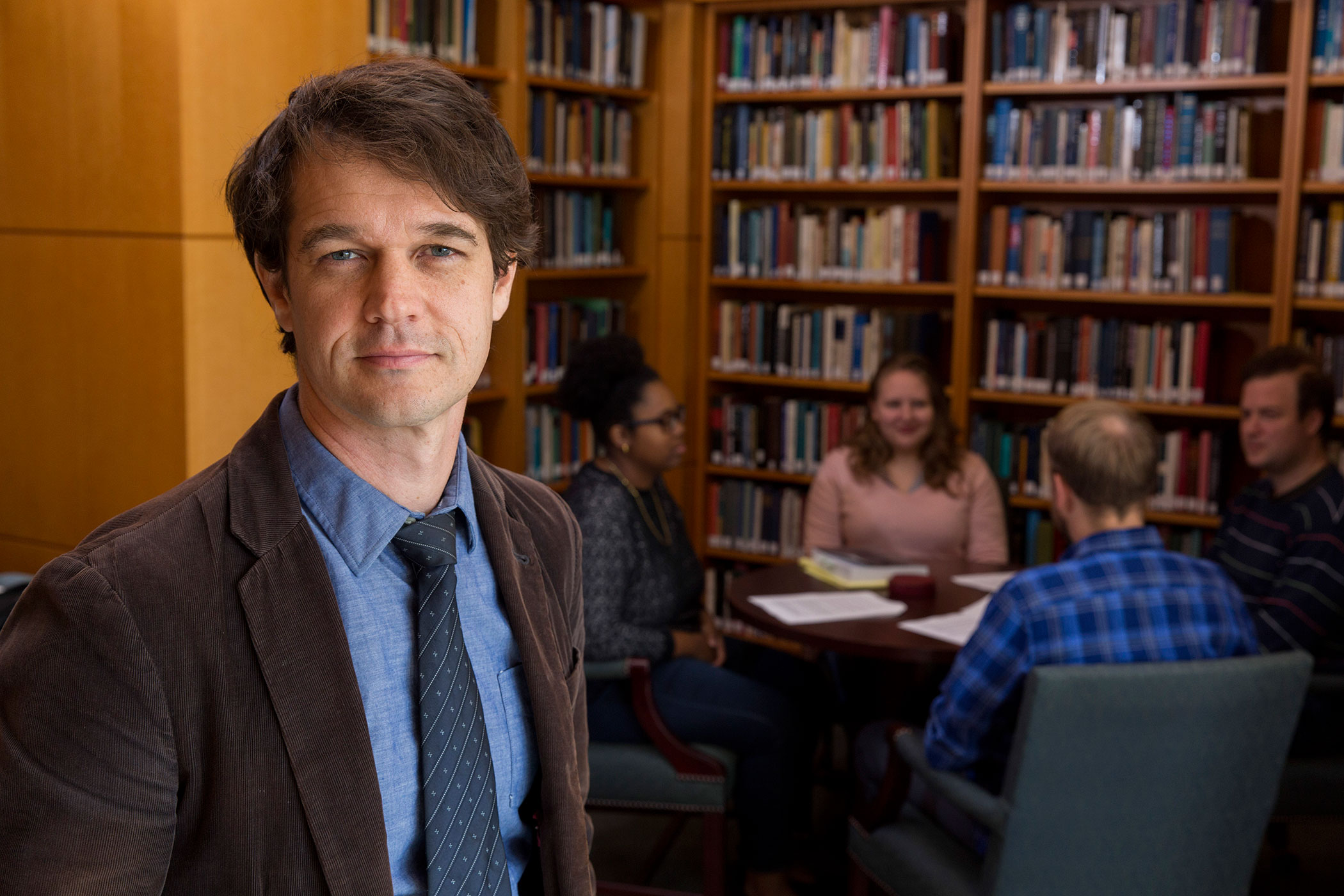FACTS
Jason Cade
Director
- Community Health Law
- Partnership Clinic and Assistant Professor
- J.D., Brooklyn Law School, 2005
- A.B., English/Education, University of North Carolina at Chapel Hill, 1997
- At UGA: 3.5 years
When Jason Cade was offered the opportunity to start the Community Health Law Partnership (Community HeLP) Clinic at UGA in 2013, he jumped at the chance. The clinic, which seeks to address health-harming legal needs of low-income individuals, provides a much-needed service in the Athens area.
“The whole idea behind this clinic is that both short- and long-term health outcomes can be related to legal problems,” Cade said. “Our goal is to reduce chaos in a family’s life, to bring stability and to maximize their income potential or their support. These are things that can make a really big difference in a family’s health especially when you are talking about very low-income persons.”
Cade and the law students, who gain client and work experience through the Community HeLP Clinic, primarily work with professionals at Mercy Health Center, which provides medical care and other support for low-income and uninsured people in Athens and the surrounding areas.
As an illustration, Cade offered the situation where a person has access to asthma medication but lives in a house with severe mold issues, noting the medication will not alleviate the source of the asthma.
“There is often a social circumstance that is connected to a person’s health, and sometimes those social circumstances have a legal solution,” Cade said.”Those are the kinds of cases we work on.”
Most matters addressed by the clinic involve helping clients navigate public benefits—increasing access to food stamps, in particular—but the clinic’s docket also often includes advanced care directives, disability issues and humanitarian immigration cases. Typically, the immigration cases involve people who have been victims of serious crime or domestic violence.
“In those cases where we have been able to get a person into a more stable family and work situation, that obviously makes a big difference in their income potential and in reducing stress and chaos—and corresponding poor health outcomes—in the family home,” said Cade, who also teaches and researches in the area of immigration law, which he was drawn to in part because of the “pace of the work.”
An immigration law practice involves “lots of ups and downs, often in a compressed period of time,” Cade said. “You sometimes can be really creative as an immigration attorney, and there is complex code to navigate. When you are successful in an immigration case, it usually brings a life-changing outcome for your client, which is very gratifying.”
The public benefits/food stamps cases Cade and his clinic students encounter provide a sense of satisfaction as well.
“Sometimes the outcome can seem relatively small, but the impact is huge to the client,” he said. “The magnitude of the results for individuals is often hard to measure because, frankly, sometimes we are dealing with embarrassingly small amounts of assistance.
“However, it still stretches a person’s monthly income and provides a little bit of breathing room that can make the difference between a crisis situation and something more manageable,” he also said. “These cases are great for law students because they can see them through to completion while gaining real-life experience in interviewing, counseling, and written and oral advocacy.”
Cade said he has always enjoyed working with students as a practicing attorney in New York City and in his fellowship post at the New York University School of Law before joining the Georgia Law faculty.
There is “that sort of promise of the future, that someone is learning about and interested in pursuing the kind of work you are doing and that they may want to continue it,” he said. “For the areas of law that I work and teach and write in, there is a tremendous need for smart and committed attorneys.
“There is not a lot of money to be made in most types of immigration law practice, and there is even less in public benefits law,” he also said. “But I love helping students who want to explore this area of great need, and I try to assist those looking for ways to keep working in these and related fields, whether full time or as part of their pro bono service.”


